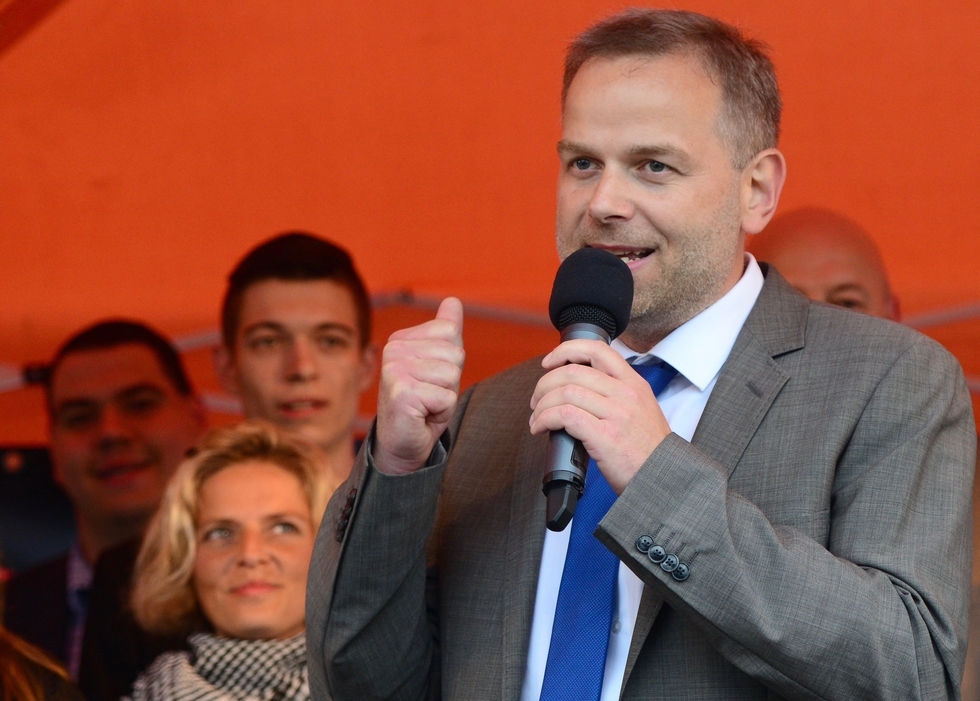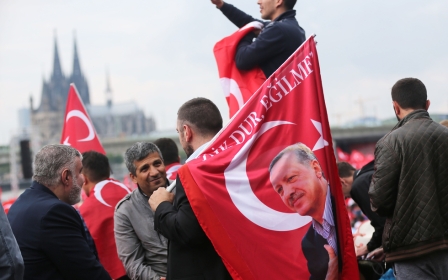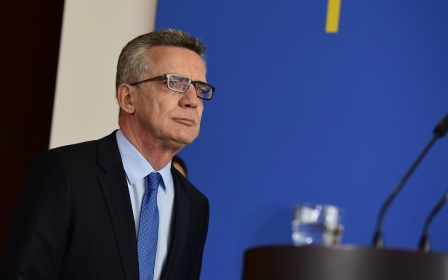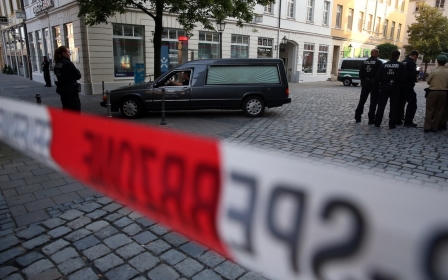Merkel's party beaten by anti-migrant populists in German poll

German Chancellor Angela Merkel’s conservative Christian Democrats fell to third place in a state election on Sunday behind the centre-left Social Democrats (SPD) and anti-immigrant Alternative for Germany (AfD) party, TV projections showed.
In a stinging defeat for Merkel in her home district one year ahead of federal elections, the upstart AfD won 21.4 percent of the vote in their first election in Mecklenburg-Vorpommern by campaigning hard against the chancellor’s policies on refugees, according to a projection by ZDF TV.
“This isn’t pretty for us,” said Michael Grosse-Groehmer, one of Merkel’s top deputies in parliament in Berlin in a ZDF TV interview. “Those who voted for the AfD were sending a message of protest.”
Although the former Communist state is Germany's poorest and least populous, it carries a symbolic meaning as it is home to Merkel's constituency Stralsund. The polls were also held exactly a year after the German leader made the momentous decision to let in tens of thousands of Syrian and other migrants marooned in eastern European countries.
Calling it a "proud result," Leif-Erik Holm, AfD's lead candidate said: "And the cream of the cake is that we have left Merkel's CDU behind us... maybe that is the beginning of the end of Merkel's time as chancellor."
Although Merkel won praise at first, the early optimism has given way to fears over how Europe's biggest economy will manage to integrate the million people who arrived last year alone.
Her decision has left her increasingly isolated in Europe, and exposed her to heavy criticism at home, including from her own conservative allies.
Voters already punished Merkel in three state elections in March, voting in droves for the AfD and rejecting Merkel’s Christian Democrats.
“This is a slap in the face for Merkel - not only in Berlin but also in her home state,” said Frauke Petry, co-leader of the AfD, on Saturday. “The voters made a clear statement against Merkel’s disastrous immigration policies. This put her in her place.”
Founded in 2013, the AfD now has won seats in nine of the 16 state assemblies across the country. However, it has no chance of governing in Mecklenburg-Vorpommern since the other parties have said they would not form a coalition with the party.
The AfD is also making gains nationwide, a new poll showed on Sunday. If the national election were held next week, the AfD would win 12 percent of the vote, making it the third-largest party in Germany, according to a poll conducted by the Emnid institute for the Bild newspaper and published on Sunday.
Merkel, mulling a bid for a fourth term as chancellor, made a last-minute campaign appearance on Saturday in Mecklenburg-Vorpommern, warning against the politics of “angst” offered by AfD with its virulent anti-refugee stance.
New MEE newsletter: Jerusalem Dispatch
Sign up to get the latest insights and analysis on Israel-Palestine, alongside Turkey Unpacked and other MEE newsletters
Middle East Eye delivers independent and unrivalled coverage and analysis of the Middle East, North Africa and beyond. To learn more about republishing this content and the associated fees, please fill out this form. More about MEE can be found here.




